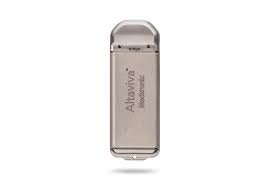
Medtronic plc, a global leader in healthcare technology, announced that it has received U.S. Food and Drug Administration (FDA) approval for the Altaviva device. The minimally invasive implantable tibial neuromodulation (ITNM) therapy is inserted near the ankle and designed to treat urge urinary incontinence.
Bladder control problems affect an estimated 43 million – or one in six – U.S. adults. Of those, nearly 16 million people have urge urinary incontinence, a common symptom of overactive bladder (OAB) characterised by a sudden, intense urge to urinate, often followed by involuntary leaks before reaching the bathroom. However, only a quarter of people with general bladder control issues have discussed their symptoms with a doctor. These conditions can affect quality of life, mental health, and sleep, while also posing a significant economic burden on both society and patients.
"The Altaviva device represents a significant advancement for patients with urge urinary incontinence who often weigh the invasiveness of a therapy and the potential side effects when considering treatment options," said Dr Kevin Benson, Urogynecologist at Sanford Health and investigator for the Altaviva device pivotal study (TITAN 2). "I'm excited to offer my patients this simple experience and believe the Altaviva device has the potential to transform lives and bring new hope to more people."
Patients who receive an Altaviva device return home with therapy activated, a first among implantable tibial devices for urge urinary incontinence. The device is inserted near the ankle during a minimally invasive procedure that doesn't require sedation or imaging. Approximately half the length of a stick of chewing gum, the Altaviva device sits slightly below the skin and above the fascia. It sends electrical impulses to the tibial nerve, helping restore communication between the bladder and the brain to regulate bladder control.
"It's an honour to bring the Altaviva device to market," said Emily Elswick, president of the Pelvic Health business, which is part of the Neuroscience Portfolio at Medtronic. "For too long, society has told people it is normal to eventually lose bladder control. We say, "enough". What is common does not mean it is normal. The Altaviva device is designed to provide a simple and effective experience to treat urge urinary incontinence, empowering patients with a technology that supports them in their daily lives and opens the door to renewed hope and improved quality of life."